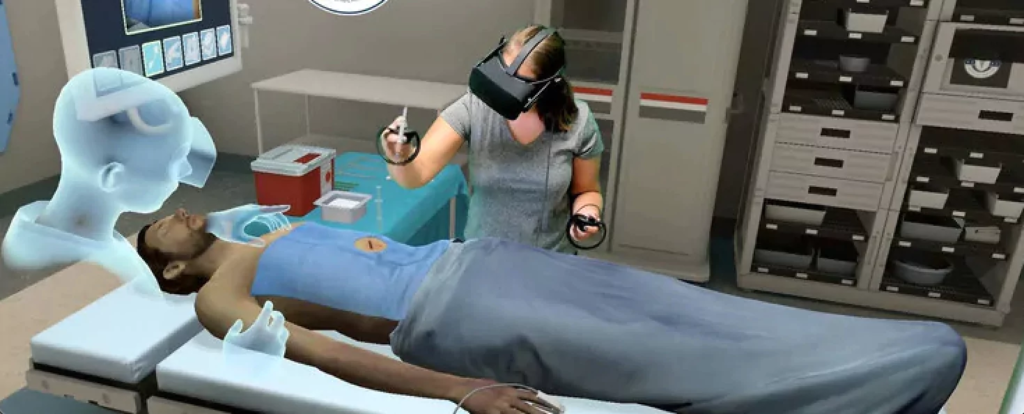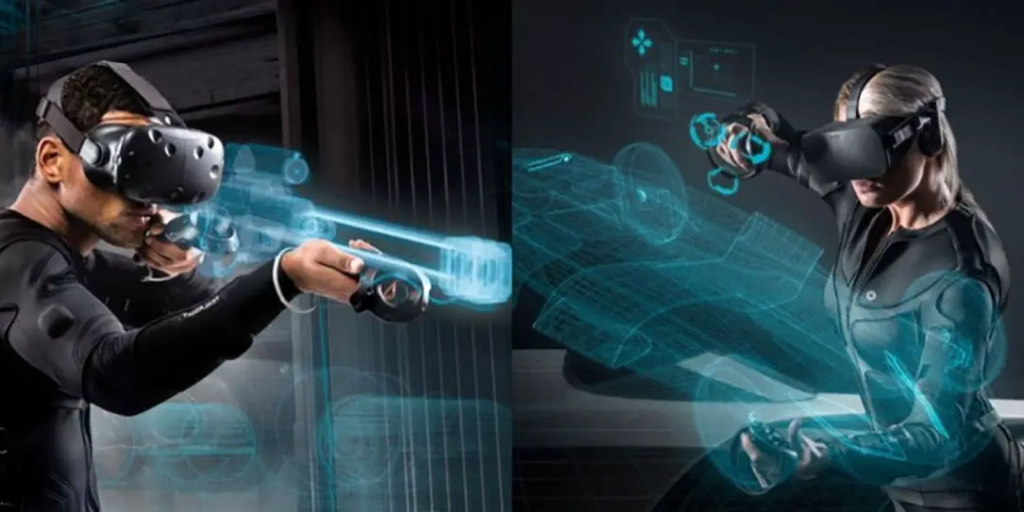I wanted to make my final blog post about Virtual Reality (VR) since it has some pretty cool applications. Personally, I’ve always found it interesting from a gaming standpoint, but there is way more to it than that. It’s a pretty cool concept that’s been around for a while now, and it’s only getting more popular. In this post, I’m going to explain what VR is, how it’s been evolving over the years, and some of the exciting ways it’s being used today.
First off, let’s start with the basics. VR stands for virtual reality, and it refers to a technology that allows users to experience a computer-generated environment as if it were real. By wearing a VR headset, users can immerse themselves in a 360-degree environment and interact with it in various ways. Some VR headsets even include hand controllers, which allow users to manipulate objects within the virtual environment.
Only a few years ago, I remember thinking, “Wow, that sounds like something out of a sci-fi movie. How long has VR technology been around?” Surprisingly, VR has been around in some form or another since the 1960s. The first VR headset was created in 1968 by Ivan Sutherland, but it was incredibly expensive and required a massive computer to run. It wasn’t until the 1990s that VR technology started to become more accessible to the general public, with the release of devices like the Virtual Boy and the Nintendo Power Glove. Fast forward to today, and VR technology is more popular than ever. With the advent of more affordable and powerful computing devices, VR is becoming more accessible to everyday consumers. There are now a variety of VR headsets on the market, from the high-end Oculus Rift to the more budget-friendly Google Cardboard.
So, how is VR technology up and coming in the world and the market? Well, there are a few reasons for this. For one, businesses are starting to realize the potential of VR technology. VR can be used for a wide range of applications, from entertainment to education to healthcare. For example, some businesses use VR to create immersive training simulations for their employees. Others are using VR to create interactive product demos or marketing experiences.
While VR can be very useful for businesses, it’s also becoming more popular in the gaming industry. With VR, gamers can immerse themselves in their favorite games like never before, exploring virtual worlds and interacting with characters in new and exciting ways. And with the recent release of the Oculus Quest 2, a standalone VR headset that doesn’t require a PC or console to operate, VR gaming is becoming more accessible to a wider audience.
One area where VR is particularly promising is in healthcare. VR technology can be used to create simulations that allow doctors and nurses to practice procedures in a safe and controlled environment. Additionally, VR can be used to help patients manage pain or anxiety by creating calming virtual environments.
But perhaps one of the most exciting things about VR technology is the really new and innovative ways it’s being used. For example, some artists are using VR to create immersive art installations that allow viewers to explore their works in a completely new way. Also, some architects are using VR to create 3D models of their buildings, allowing clients to explore and interact with the spaces before they’re even built.
Overall, VR technology is an incredibly exciting development that has the potential to transform the way we interact with technology. Its immersive nature allows users to explore virtual environments and interact with them in new and exciting ways. As this technology becomes more accessible and more businesses start to realize its potential, we can expect to see even more creative uses of VR in the future.
So, whether you’re a gamer, a business owner, an artist, or just a curious tech enthusiast, VR is definitely something worth exploring. And who knows? Maybe one day we’ll all be living in a fully immersive virtual world like that movie Ready Player One. While that might still be a ways off, it’s clear that VR technology has come a long way since its early days, and it’s only getting better. So, strap on your VR headset and get ready to learn, game, create, and more!




